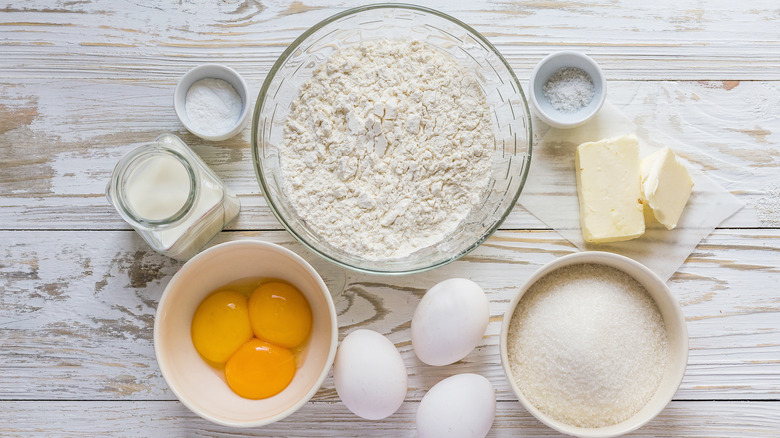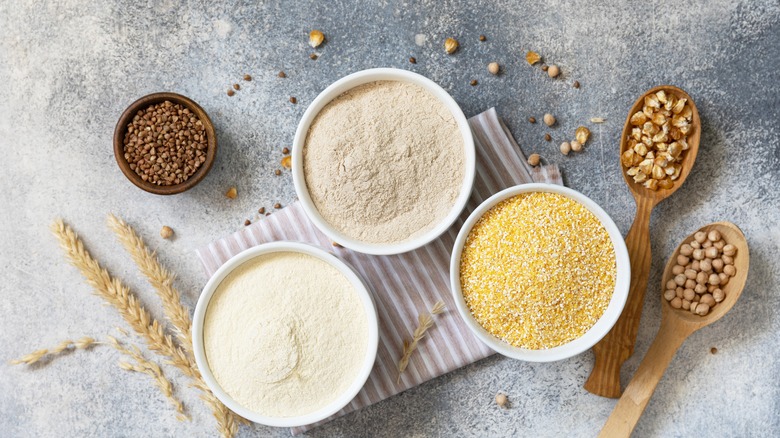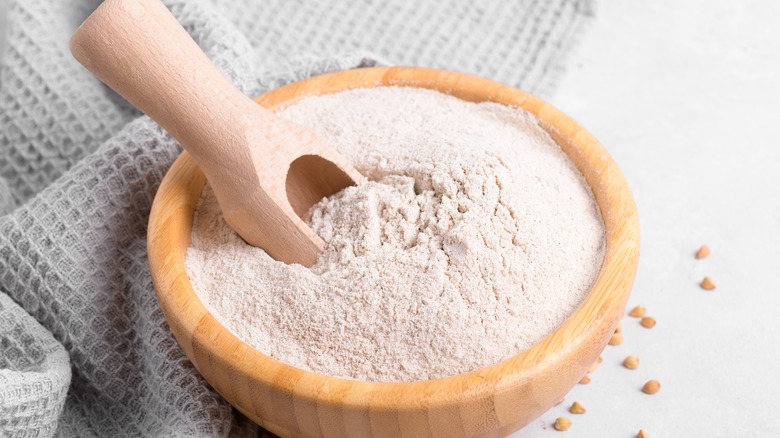How Is Cake Flour Different From Regular Flour?
Flour is one of those things that everyone should keep in their pantry. When thinking of this essential ingredient, most people probably picture the standard white, all-purpose flour. As the name implies, you can pretty much use all-purpose flour for anything, making it extremely helpful and versatile. According to Michigan State University, this type of flour is great for creating various desserts, making batter for fried meats (including fish and pork chops), and thickening gravy and sauces. While all-purpose flour is probably the most common type, there are several different kinds, including cake flour.
Unlike all-purpose flour, which is used in a variety of applications, cake flour is typically reserved for baked goods. This type of flour has a very fine texture, allowing it to give desserts such as muffins and cupcakes a soft, tender texture, per MasterClass. We know that cake flour works especially well for baked goods, but how else does it differ from regular all-purpose flour?
Cake flour has a lower protein content
The main difference between cake flour and all-purpose flour is the protein content. According to Southern Living, cake flour has roughly 7-9% protein, while all-purpose flour contains about 10-13% protein. This variance in protein levels is due to the varieties of wheat from which the different flours are made. Cake flour is made from soft wheat, which contains a low protein content. Conversely, all-purpose flour is created from a mixture of soft wheat and hard wheat, which contains a high protein content. Because all-purpose flour is higher in protein, it produces more gluten, making it a stronger flour that works well for denser desserts.
Another key difference between cake flour and all-purpose flour is texture. As mentioned, cake flour has a fine texture, and this is because it is ground this way, per MasterClass. On the other hand, all-purpose flour usually has a coarser, denser texture. However, if all-purpose flour is bleached, it becomes finer.
When to use cake flour vs. all-purpose flour
Though cake flour does wonders for many desserts, you actually shouldn't use it for all baked goods. So, when should you use cake flour, and when should you use regular all-purpose flour? Since cake flour provides a more tender texture, it's best to use it in desserts that you want to be especially soft, per Southern Living. A great example of a dessert that calls for cake flour is angel food cake, which is known for being extremely fluffy.
According to the Food Network, all-purpose flour works better for baked goods that require more structure, as its texture is less fine than that of cake flour. So, while you can really use this type of flour in any dessert, its texture makes it perfect for things like bread. In addition, MasterClass reports that the more structured all-purpose flour is the better option if you are baking a cake that requires several wet ingredients, such as carrot cake.


